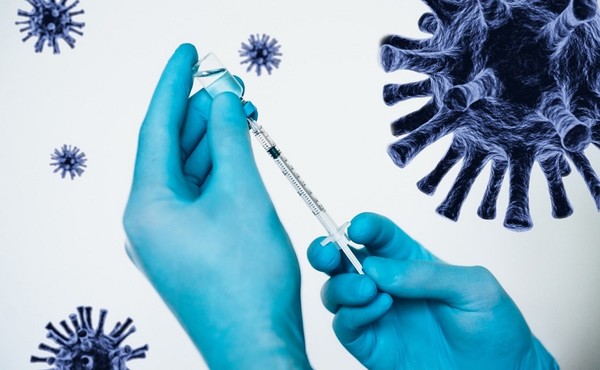In the wake of the agreement between Samsung Biologics and Moderna on manufacturing mRNA Covid-19 shots on Saturday, attention is drawn to Korean pharmaceutical companies’ endeavors to develop mRNA vaccine technology.
Under the accord, Samsung Biologics will fill, label, and package hundreds of millions of vaccines and send them to countries outside the U.S.

“The Modena vaccine is the most important vaccine for people around the world fighting Covid-19,” Samsung Biologics CEO John Rim said after signing the agreement. “In response to the urgent worldwide demand for vaccines, we have agreed on a manufacturing plan to start sending out the products from the second half of the year.”
Last Wednesday, International Vaccine Institute (IVI) Director-General Jerome Kim also said Korea could become a hub for making Covid-19 vaccines in Asia in nine months.
“Korean biotechnology companies can quickly make high-quality drugs,” Kim said. “The country could be a great partner for the U.S., and its vaccine companies can be of help with their manufacturing capabilities.”
Samsung Biologics is the first to produce mRNA vaccines in Korea. Still, the nation needs to develop a homegrown mRNA vaccine technology as Samsung will only fill the supplied solution and finish the packaging for the time being.
Korean vaccine developers said they were aware of the need to develop homegrown technology as the Covid-19 would continue mutation and turn into a seasonal disease like flu.
The mRNA vaccine uses Lipid Nano Particles (LNP) to deliver mRNA to cells and generate Covid-19 virus spike proteins to induce immunity in the human body. The LNP drug delivery system protects and produces mRNA easily degraded in the human body to the target cells. It is known as a key technology for mRNA vaccines.
The government also supports the development of mRNA vaccine to make Korea the hub of global vaccine supply in the long term through homegrown mRNA technology.
“Our goal is not to become a contract manufacturing partner in the production of ingredients for the mRNA COVID-19 vaccines. We aim to develop the mRNA vaccines by next year, with technologies acquired through possible technology transfers and co-development deals,” said Son Young-rae, spokesperson for the Ministry of Health and Welfare, during a radio interview on Monday.
The mRNA technology can also treat other diseases, such as new infectious diseases and cancer, in the future.
About 10 biopharmaceutical companies, led by Hanmi Science and ST Pharm, have recently discussed forming a consortium to develop mRNA vaccines. Various medical institutions, including Seoul National University, Pohang University of Science and Technology, and Myongji Medical Foundation, participated in discussions.
Hanmi Pharmaceutical CEO Kwon Se-chang said at the JP Morgan healthcare conference held in January that the company has the facilities and capabilities to develop and manufacture DNA and mRNA vaccines.
ST Pharm is also known to be promoting the development of mRNA vaccines as it had secured LNP technology.
On April 8, ST Pharm secured the technology by agreeing on a technology transfer deal with Genevant Sciences, a pharmaceutical company in Switzerland, to develop Covid-19 vaccines.
However, the domestic companies have yet to work out detailed plans, and most of them are still in the preparation stage. No company has secured the specific technology for mRNA vaccine and built a production facility.
Eyegene aims to enter clinical trials next month using technology to develop cationic liposomes into mRNA transporters.
The company revealed that it confirmed the efficacy of the Covid-19 vaccine candidate EG-COVID in the preclinical phase in March. EG-COVID is an mRNA-based vaccine candidate under development using the genetic sequence of the spike protein of the European variant D614G.
Geneone Life Science also has the potential to develop and produce mRNA vaccines as its U.S. branch VGXI started constructing a plant in Texas that can make gene therapy and plasmids used for Covid-19 vaccines and RNA vaccines.

